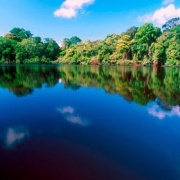What is Ecotourism 2.0?
By some accounts tourism is the world’s largest industry, accounting for more than 10% of total employment. Tourism can have a negative impact on the environment by leading to the degradation of habitats and landscapes, depleting natural resources, and generating waste and pollution.
As a response to these concerns, ecotourism has grown in popularity because of its emphasis on being ecologically and socially conscious by raising awareness and support for conservation and local culture. Responsible ecotourism includes programs that minimize the adverse effects of traditional tourism on the natural environment and enhance the cultural integrity of the local people. Ecotourism has great potential for the developing world as communities come together and get involved, enforcing their own standards for sustainability.
So what is ecotourism 2.0? Ecotourism 2.0 seeks to fill the gaps that exist in ineffective organizing structures of ecotour communities. There are three main characteristics of ecotourism 2.0:
1. Engagement and Education – tourism doesn’t have to be passive and there can be a take-home message
2. Social Media – access and communication of information
3. Radical Transparency – clear organization within communities and with their visitors
Social media has thoroughly changed marketing techniques, now “people aggregate themselves around causes and products they believe in and age, sex and other demographic information is more and more irrelevant as this new media environment takes over.” It also allows for easy access to specific information and advice from locals, extending the experience beyond a vacation with updated news and reminders of key concepts.
Let’s look at successful social media campaigns:
Laos – Ecotourism Laos‘s website has Google Groups for donor organizations, government agencies, NGOs and the private sector to exchange information on current projects and issues relating to ecotourism development in Laos. The website allows for transparency and easy access to information and recommendation for visitors.
India – Ecotourismkeralam.org provides access to information, specifically contact information for visitors to Kerala, India. Kerala is considered one of India’s most unspoiled corners prone to forest clearing.
Kenya – Eco Tourism Kenya is a multifaceted forum with updates and links to everything related to sustainable tourism.
Lebanon – This Baldati community is an ecotourism e-community for public announcements in the field.






































